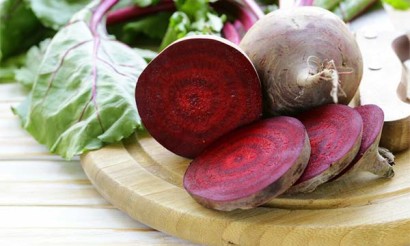Walnuts during pregnancy: benefits and harms
With the onset of pregnancy, the life of every woman changes dramatically. Now the expectant mother tries to direct all her efforts and resources to achieve one goal - to do everything necessary to bring the long-awaited baby into the world on time and healthy. Therefore, from the earliest days of gestation, a woman jealously revises its own diet, trying to leave in it only those foods that are safe in her position.
- Can I eat walnuts during pregnancy
- In the 1st trimester
- In the 2nd trimester
- In the 3rd trimester
- How to eat walnuts correctly
- What fruits are useful
- In what form is it better to eat the product?
- How much you can eat per day.
- Can I eat them at night and on an empty stomach?
- Do I have to wash them before eating?
- The benefits of walnuts during pregnancy
- Can walnuts harm the future mother?
- Consequences of excessive consumption of walnuts
- Choosing and storing walnuts
Knowing about the great benefits of walnuts, expectant mothers do not ignore this natural product. After all, walnut kernels contain almost all known vitamins and almost half of the minerals from the Mendeleev Table. This whole set of nutrients is necessary to support the woman herself during the difficult period of carrying the baby. The product will bring a lot of benefits to the developing fetus. But walnuts are a special gift of nature. The high content of proteins, fats and some other components in the kernels can be harmful to the health of the future mother. So let's consider how to properly consume walnuts during pregnancy, in what form it is better to eat them, how to minimize the risks of side effects.
Can I eat walnuts during pregnancy?
Walnuts in appearance resemble the human brain. Therefore, in ancient times, the tree, which bears valuable fruits, was called the tree of life. By the way, this crop is a leader among plants in terms of longevity, because the walnut can bear fruit for four centuries. In addition to its great nutritional value, the product has a whole complex of medicinal properties. In ancient times, walnut kernels were used to treat many diseases. They were called the food of the gods, which, however, is not far from the truth, because the Bible mentions walnuts many times. True, it does not specify a particular variety of culture.
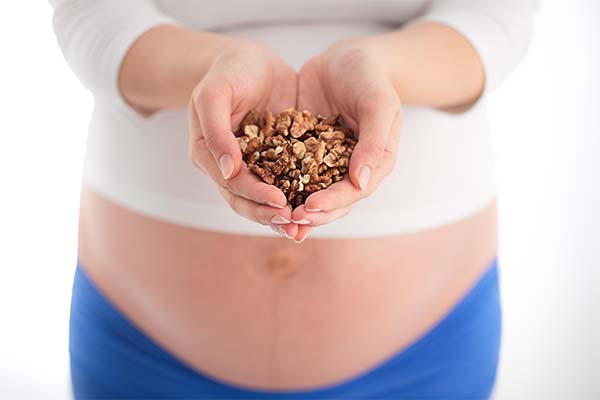
Walnuts among their brethren are distinguished by many qualities. They have a perfectly balanced composition, despite the diversity of ingredients. But the main purpose of the amazing fruit is the ability to provide a person with strength and vitality. This brief description of the characteristics of the ancient crop allows us to judge its enormous benefits for humans.
Unfortunately, most expectant mothers are quite wary of walnuts, categorically refusing to eat them. But experts believe that it is not necessary to impose a taboo on such a useful product, which has tremendous nutritional value.
Walnuts during pregnancy must be consumed. The main thing is to choose a product of impeccable quality. If the expectant mother has no health problems, she can eat nuts in pure form, add them to different salads and nice fruit treats. Nuts in a reasonable amount have a beneficial effect on the nervous system and immunity of the woman in the situation. Their use will have a positive effect on lactation. However, there is one significant disadvantage of walnut treats: it is quite a caloric product, so its constant use can lead to weight gain, which is undesirable during pregnancy. In a word, the benefits of walnuts for future mothers are obvious, but at the same time we should not forget about the existing risks.
Dieticians have made a list of general recommendations for each stage of pregnancy. By sticking to them, every pregnant woman can find the best place for walnuts in her daily menu.
In the 1st trimester
In the first three months of pregnancy, all of the baby's organs and systems are laid down. In the earliest term, the nervous system is formed, which will further determine the mental development of the baby. Therefore, in the very first weeks after conception, fatty acids and folic acid (vitamin B9) are needed to support these important processes. These vital elements are found in walnuts. Mommy-to-be can afford 10-12 raw walnuts a day. By the way, walnuts are excellent for relieving the main sign of early toxicity - nausea.
In the 2nd trimester
From the 3rd to the 6th month of pregnancy is an active formation of the child's bone skeleton. Therefore, a lot of calcium and phosphorus are required for the building process. If you do not get enough of them with food, the body begins to take up the resources of the mother's body. That's why from the second trimester many future mothers start having problems with their teeth, hair becomes dull and falls out, and the condition of their nails deteriorates. Such transformations have a negative impact on the young woman's appearance and health.
To prevent this process at the very beginning of its development, you just need to include in your diet 5-7 mature walnut cores. This amount of natural product will be enough to meet the body's needs for minerals and vitamins. But because of the high concentration of proteins in the second trimester, the natural product should be used not more than 3 times a week.
In the 3rd trimester
In the late terms of pregnancy, the consumption of walnuts should be limited. When the baby's body is almost formed, the demand for the product decreases. On the other hand, the high caloric content of kernels will only contribute to gaining unwanted pounds, and the extra weight will complicate the course of the upcoming childbirth. There is also such a dangerous factor as constipation. A product with a high percentage of fat will only complicate this problem, which most pregnant women face. Therefore, in the diet of the expectant mother in the last three months of pregnancy, nuts can appear only with regular stools. The daily portion in the third trimester is 2-3 nuts.
Important point: Every pregnant woman should discuss her menu with her doctor. After assessing her condition, a specialist will give recommendations on how best to use such a useful product as walnuts.
How to consume walnuts correctly
There are no specific standards for eating walnuts. Everything depends on the individual characteristics of a particular person and his state of health. Since pregnancy and motherhood are natural states for every woman, expectant mothers can afford to enjoy nuts, while receiving great benefits. If pregnancy proceeds with any abnormalities, all nutritional issues should be decided together with the doctor.
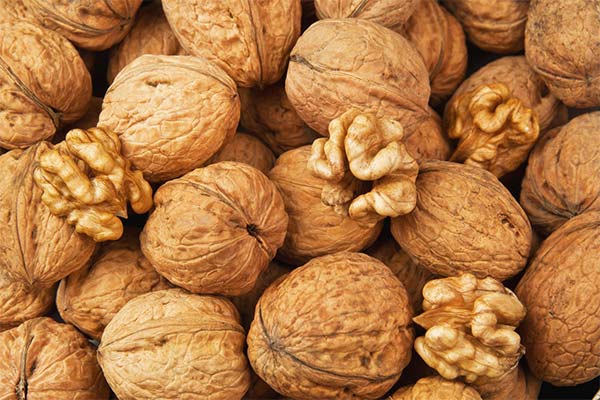
What fruits are useful
Dieticians and gynecologists recommend women to use only ripe fruits during pregnancy. Today, green, that is, not fully ripe, fruits are widely promoted. Indeed, young nuts have 50 times more vitamin C than citrus fruits. In folk medicine, immature walnuts are used to purify the blood, strengthen the immune system, treat certain diseases. But as a food for the future mother, it is not suitable.
It is also not recommended to subject the natural product to heat treatment, since after it most of the useful components will disappear. In addition, roasted nuts impair digestion and intestinal function.
What is the best way to consume the product
Expectant mothers should eat raw nuts in pure form or add them to light dishes. For example, you can make a fruit salad from pears and apples with the addition of honey to taste and a small portion of peeled walnuts. Such a dish is ideal for a hearty dinner. Walnuts go well with dried fruit. For example, from two cups of kernels, a cup of honey and half a cup of dried apricots you can make a very tasty cream with the addition of butter and cocoa powder. Making a small supply, you can then enjoy the taste of a healthy natural treat for a week. It can be added to porridge or spread on bread. However, ladies in the position, who are prone to allergies, such desserts are not recommended to eat.
Regarding walnut oil, the decision of experts is ambiguous, because on the one hand, the presence of polyunsaturated acids and a record amount of vitamin E will only contribute to the full development of the fetus. On the other hand, the high caloric content, which is almost 900 units, makes peanut butter potentially dangerous in terms of gaining extra weight.
How much you can eat per day
The consumption of walnuts during pregnancy should be strictly regulated. Even with a great desire to eat one extra nut, you need to listen to the voice of reason. The amount is rationed depending on the timing of pregnancy:
- In the first three months it is allowed to eat 10-12 fruits per day.
- In the second trimester it is enough - 3-4 pieces.
- In the last three months, the allowed portion decreases to 2-3 fruits several times a week.
These are approximate rates, which may vary depending on the characteristics of the woman herself and the course of pregnancy. Of course, the product must be only of excellent quality. How to choose walnuts, we will tell you a little later.
Can I eat walnuts at night and on an empty stomach?
The question of what time it is better to eat walnuts is quite logical, because for the stomach the hard structure of the fruit represents an additional load. For this reason, on an empty stomach walnuts should not be eaten by future mothers, if they are supposed to be eaten in pure form. It is better to chop them and add to the morning porridge or salad. Walnuts are perfectly combined with oatmeal and yogurt. Nutritionists believe that the best time to eat walnuts is before 4 pm. Until the evening, the heavy food has time to digest and be absorbed by the body.
As for the evening intake, this option is more suitable for future mothers. Nuts give a good sense of satiation, so they can be quite a substitute for dinner, eating a few kernels about two hours before bedtime. But just before a night's rest, you should not eat nuts, because it will lead to gaining extra weight and worsening of digestion. After all, fatty acids account for 65% of the composition of the kernels, which are poorly digested at night. Therefore, the energy resource that the female body will get with nuts, it is necessary to have time to use up before going to sleep. Two hours will be enough for this.
Note: If nuts made up the dinner of the future mommy, the breakfast should be complete.
Do I need to wash them before using them?
For preventive purposes, it is recommended to wash the nuts from the outside immediately after purchase. There may be pathogenic microorganisms on the shell. It is enough to rinse the fruits well under running water, and then dry them. After such pre-treatment, they can be stored for a long time. Before eating, nutritionists advise soaking the kernels for several hours. Moisture will make softer the coarse structure of the core of walnuts, which will accelerate their digestion and improve digestion by the body.
The benefits of walnuts during pregnancy
Walnuts are an amazing gift of nature. Their chemical composition is a unique formula of several dozen individual components and complex organic compounds. This feature distinguishes them to a large extent from other species, so they are considered an indispensable product for the diet of a pregnant woman. As already mentioned, most of the composition is accounted for by proteins. Walnuts are rich in fiber content. In addition to these components, the product contains the following substances:
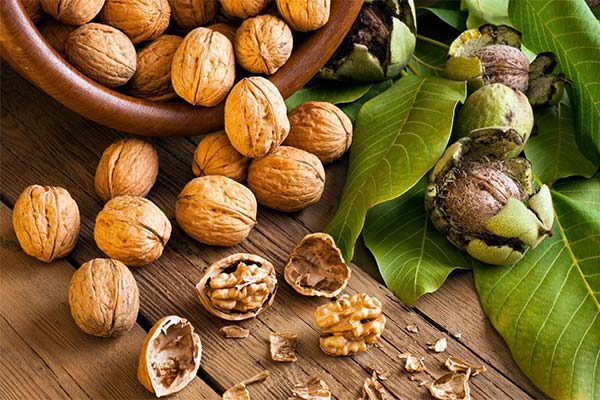
- Amino acids. The kernels contain a whole group of amino acids, including essential ones. These compounds take part in protein synthesis and metabolic processes, accelerate the metabolism and provide the body with energy resources.
- Polyunsaturated omega fatty acids regulate the water-electrolyte balance, contribute to digestion, restore normal acidity parameters. Omega fatty acids are necessary for the hair and skin of the face. This group also includes linolenic, oleic, gallic, palmitic and other acids.
- Vitamins. Walnuts contain most of the B vitamins, on which the state of the nervous system depends. These substances, and especially folic acid (B9) is necessary for the full development of the fetus. Ascorbic acid is responsible for the immune system and skin. Nicotinic acid PP regulates carbohydrate and protein metabolism, and tocopherol is responsible for the hormonal background. All the vitamins present in walnuts have a positive effect on the appearance.
- Micro- and macronutrients. Walnuts are rich in iodine and potassium, they contain zinc and magnesium, copper and selenium. All these substances are necessary for the harmonious development of the unborn child and the woman herself. Each element has its own important mission: for example, iron is responsible for hemoglobin levels in the blood, preventing the development of anemia. Sulfur is also involved in the process of hematopoiesis and metabolism. Silicon rejuvenates the skin and ensures the strength of bones and teeth.
- Phytosterols. Walnuts are very rich in substances from this group. They clean the blood vessels and reduce harmful cholesterol levels. Phytosterols are of great benefit to the entire circulatory system, as well as having a beneficial effect on the heart.
- Useful organics. In this group you can include tannins, essential oils, phytoncides - natural antibiotics.
- There are carbohydrates in the composition of walnuts. As for the ratio of ingredients, vegetable proteins and fats make up the bulk, they account for more than 60% of the entire composition.
Due to such a rich chemical composition, walnut kernels are of great value as a foodstuff in the diet of a pregnant woman. If you consume them in the recommended amounts every day, such a supplement will manifest the following useful properties:
- Walnuts will provide everything necessary for the fetus developing in the womb, will help in the formation of the bone skeleton, nervous system, brain, due to the high content of dietary fiber will improve intestinal motility, which will ensure regular stools.
- The ability to quickly satisfy the feeling of hunger will help women in a difficult period not to overeat. A small portion of a caloric product may well replace dinner or become a pleasant snack.
- All kinds of nuts, especially walnuts, have a positive effect on brain activity. With the regular consumption of the useful product during pregnancy, the fetus will receive everything necessary for mental and intellectual development in the future.
- Nuts stimulate lactation. Therefore, their use during gestation can be regarded as preparation for the nursing period.
- In the early stages of pregnancy nuts are great to help cope with the symptoms of toxicity. This feature is worth sure to use, to alleviate the woman.
- A mild diuretic effect ensures the removal of excess fluid from the body, which helps to get rid of edema.
- Walnuts have a lot of B vitamins, so the product is able to eliminate the effects of stress and nervousness, which often happens to women in the position.
- Doctors strongly recommend future mothers, if there are no contraindications, to eat a few walnuts a day to prevent anemia. Low hemoglobin levels are dangerous for the developing fetus. Therefore, this parameter requires close attention during pregnancy.
- Due to the iodine content, nuts will help to normalize the thyroid gland, which with the onset of pregnancy is under enormous pressure.
- Nuts saturate the body with energy, so it is useful to eat them with increased fatigue.
- With insomnia, which many expectant mothers complain about in the last trimester, help nut-honey mixture. Several teaspoons of the tasty treat will calm your nerves and help you relax. And this is the main condition for a full-fledged sleep for a pregnant woman.
- Walnuts in combination with raisins are beneficial for the heart.
- The natural product is also famous for its immunomodulatory properties. During pregnancy, the protective barrier of the future mother's body is reduced. Therefore, a portion of walnut treats, especially in alliance with honey, will help maintain the immune system at the proper level.
Such a detailed description of the composition and useful properties of walnuts will help you understand how wide the range of their use can be, even in a period of strict restrictions during pregnancy. The unique combination of protein components with minerals and vitamins will help women cope with the difficulties of the first months of pregnancy and prepare the body for future motherhood. But the main advantage of nuts is that this organic product is a reliable source of nutrition for the developing fetus. The daily allowance can well compensate all the needs of the unborn child.
Can walnuts harm the unborn mother?
It is a fact of life that every object has its positive and negative sides. Food products are no exception. Despite its unique composition, with which no other product can compare in value, walnuts have some disadvantages. It would be more correct to say that its use is not always beneficial for a pregnant woman and the process of gestation itself. Complete contraindication to the use are the following conditions in the expectant mother:
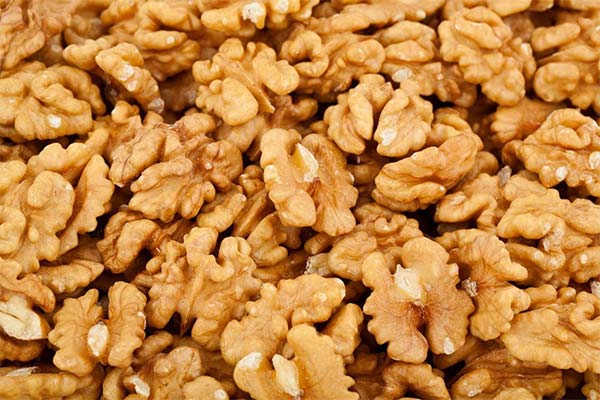
- Tendency to allergic manifestations (natural proteins are considered the most allergic).
- Individual intolerance to the product.
- The presence of pancreatitis in any form.
- Skin diseases.
- Pathologies of the digestive system: gastritis, ulcers.
- Blood clotting disorders.
These are direct contraindications. But, in addition, you should also consider such risks as the development of the unborn child's allergies. In some cases, the child's allergic status can lead to the development of bronchial asthma in the future.
The presence of essential oils in the composition of walnuts in the case of particular sensitivity on the part of a woman can cause irritation of the mouth and nasopharynx. In addition, the fat-rich food makes it difficult for the intestines to function. And pregnant women already have problems with regular stools. All these points should be taken into account by the future mother.
The consequences of the excessive consumption of walnuts
If a pregnant woman will neglect the above norms, you can expect the following negative health consequences:
- Overeating walnuts because of the huge amount of proteins is detrimental to the kidneys and liver.
- Fatty foods, and nuts are very high in fat, provoke constipation, which in turn can lead to the development of hemorrhoids.
- If you have a cold, accompanied with cough and nasopharyngeal grating, you should not eat nuts, because the essential oils irritate the mucous membranes even more.
- The most severe consequence of immoderate consumption of the product is angioedema or Quincke's edema.
- Pregnant women who have previously had weight problems should abandon the intention to include walnuts in their diet.
Note: For any abnormal reaction, it is worth immediately consulting a doctor. This can be itching, redness or rash on the skin. And you should not postpone the visit when it comes to the health of the future child.
Choosing and storing walnuts
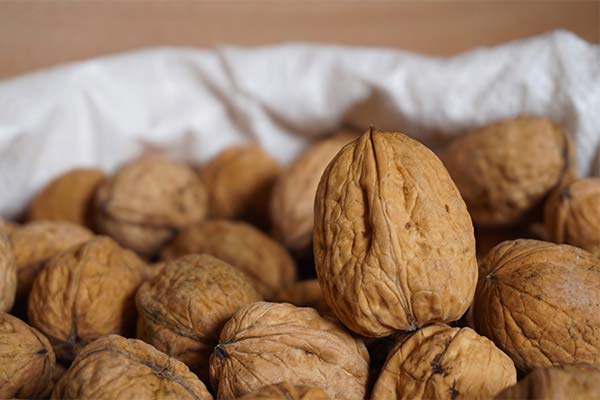
Fortunately, buying walnuts has never been a problem. You can buy such a product in any store or at the market. But, since in the diet of the future mother can be present only products of high quality, it is better to buy such a product from proven sellers. Many individuals grow nuts in their garden, and then sell the excess. In short, you can buy quality nuts if you know the rules of choice. Quality standards correspond to the fruits:
- whole in the shell;
- peeled kernels;
- crushed without the shell.
When choosing, first of all, you should assess the external signs of a natural product. Good nuts should have no damage, no signs of mold and rot, they have a pleasant natural flavor with buttery notes.
Rules of storage
For the product to be stored for a long time, it must be properly prepared:
- Dry out before long-term storage.
- Keep in a cool dry place (temperature range -5 to +10).
- Use a convenient container for the storage of nuts - canvas bags or a box.
- Avoid sunlight.
Conclusion
Walnuts are a very nutritious product with a rich composition. In nature, it is difficult to find an equivalent analogue. If the future mother will strictly observe the rate of consumption of nuts, add them to porridges and yogurt, she will be able to significantly diversify and enrich her daily diet. To exclude adverse reactions and other risks, it is worth to consult a gynecologist before introducing walnuts into the diet. It is necessary to start with a minimum portion, even if walnuts were constantly present in the menu before pregnancy. In case of any negative reaction, it is necessary to immediately stop the use of a dangerous product.
«Important: All information on this site is provided for informational purposes only purposes. Consult a specialist before applying any recommendations. specialist before applying any of the recommendations. Neither the editors nor the authors shall be liable for any possible harm caused by materials."





